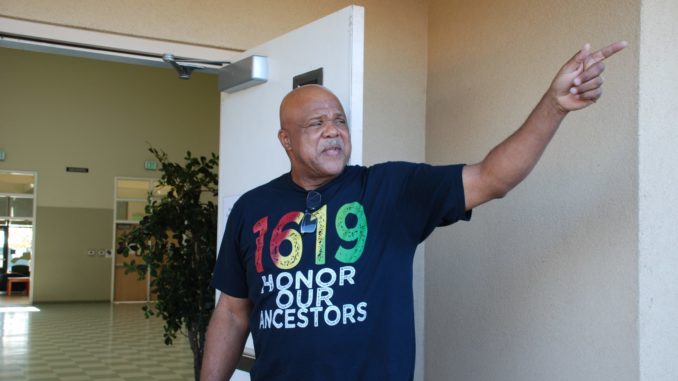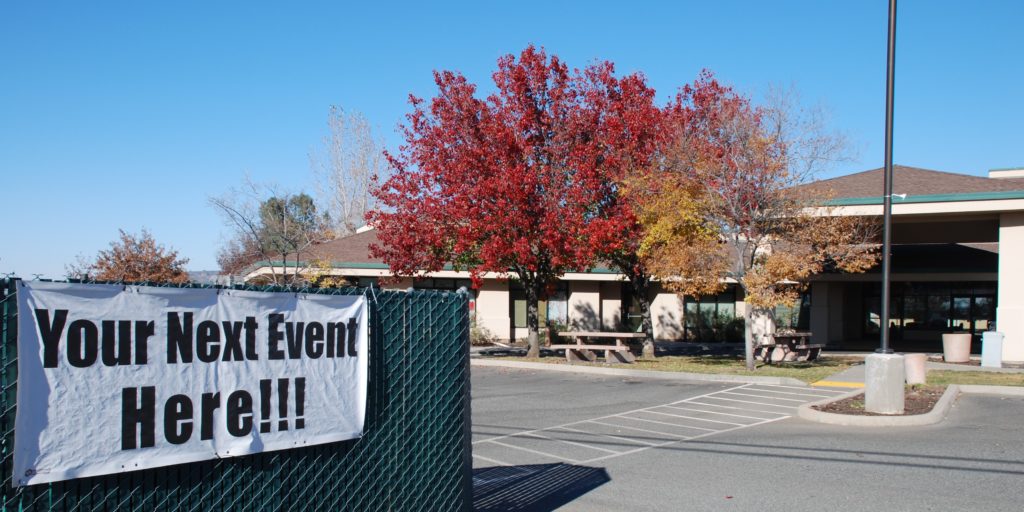
Denise-Judy Johnson has deep roots in South Oroville. It’s where she was raised—where her mother was raised. She was there in the early 1980s when white supremacists spread anti-Black literature at Oroville High School and the group’s leader, Perry “Red” Warthan, killed the teen who informed on him. She’s watched city leaders wrestle with annexing South Oroville, which they finally did in 2015.
Johnson has seen positive developments, as well—most conspicuously, the Southside Oroville Community Center, built in 2001 on a Wyandotte Avenue crest by Oroville Hospital. Along with guiding two community groups, the Tree of Hope Foundation and Concerned Parents of South Oroville, she’s a member of the nonprofit organization that operates the facility for Butte County, under whose jurisdiction the facility originally fell.
On May 31, 2021, the county can transfer its rights to the community center, and the city has expressed interest. Public records obtained by the Oroville Southside Community Improvement Association (OSCIA), which runs the center, contain emails between the city and county, including discussion of potential uses for municipal business and outside agencies if Oroville moves in, ostensibly taking control from the community association.
Though not on the Oroville City Council agenda this afternoon (Dec. 1), community members plan to meet at City Hall at 4:30 p.m. and let their concerns be heard.
“I don’t hear [in the city’s emails] where will the kids go, where will the community go, for this center is the center of Southside,” Johnson told the CN&R. “It’s where we come when we need information, when we don’t know what to do, when we’re doing a job fair, when we need our kids to be placed somewhere, when we need have a memorial service, when we need to come together and meet together. This is the lifeline of Southside. …
“Nothing has been poured into Southside by the city since annexation—tell me where, I’ll go look at it, take some pictures. They gave us a cookie jar with no cookies. Now, [the city says] ‘Let’s take the top of the hill, and we’ll overlook ’em and not look at ’em at all.’ Because once they do that, we’re not welcome up this hill.”
City Administrator Bill LaGrone confirmed “conversations of taking ownership” initiated by county staff and that city staff has drafted only “hypotheticals of potential uses of the facility” as opposed to a full, formal plan.
“The council has given no direction on the day-to-day operation of the facility or set a policy,” LaGrone said by phone. “No direction has been given about changing anything. … Staff can have all of the ideas that we want; however, until the City Council sets the policy, those ideas are just ideas.”

Among the ideas raised, in an email from Assistant City Administrator Leo DePaola, is using the center as a municipal building. Since the current City Hall “is located in the inundation zone in a dam failure,” he wrote, the Southside center’s “location would allow the City to to have an onsite EOC [emergency operations center].” DePaola also wrote that the city “is willing to entertain possibilities of leasing space to partner organizations or nonprofits … as typically these organizations need operational space while having limited funds.”
Southside residents rely on the center to meet a wide array of needs. Pastor Kevin Thompson, OSCIA’s CEO and center director; Keesha Hills, OSCIA senior administrator; Bill Bynum, Friends of Oroville co-founder; and Johnson listed two dozen services—ranging from schooling and youth enrichment to food distributions to Hmong funerals and neighborhood meetings.
“It represents the name ‘Community Center,’” Thompson said.
Pastor of No. 1 Church of God in Christ, Thompson has strong concerns about the facility’s future in city hands. He said OSCIA has proven its capability to run a community center, while Oroville has taken no interest in the facility until now.
“It would be devastating to see this center to go into the hands of anyone other than the community,” Thompson said. “It was intended for the community; I personally have been in this building for 17 years, in one capacity or another, waiting for the 20 years to expire, because that’s the vision that we had. Things weren’t always running as smooth as they are now, but we held on, knowing one day we would have the opportunity to have this center turned over to the community through our nonprofit.
“To see it even being discussed [otherwise], that’s almost a slap in the face to an entire community.”
Thompson said Vice Mayor Scott Thomson will meet with him this week, In a letter from LaGrone, Mayor Chuck Reynolds declined. LaGrone told the CN&R that discussions are preliminary and that city officials “certainly will sit down with all stakeholders” should the council decide to pursue the center.
“I absolutely see the value in the services that are provided there and the value of having a community center such as this,” LaGrone said. “But I believe the city also has a financial and fiduciary responsibility to ensure that the dollars that we were entrusted with were handled appropriately, and what’s done with those dollars is done in the best interest of the entire community.
“I understand the concern that’s expressed by folks,” he added. “I would just hope that everyone would be patient, let us go through our due diligence, then make a fair evaluation of what we do from here.”

Be the first to comment